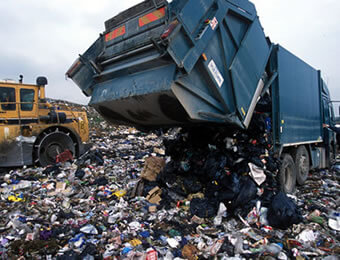A United States of America-based environmental scientist, Mr Akinloye Ojewole, has stressed the critical importance of responsible waste management in achieving a cleaner, healthier, and sustainable environment in Nigeria.
Ojewole, who stated this in the wake of growing environmental concerns across the world and in particular Nigeria, said it was necessary the need for the country to have responsible waste management.
Ojewole, an expert with vast experience in the field, emphasized that “Beyond protecting natural resources, efficient waste management also helps safeguard public health and promote sustainable development across the nation”
According to him, Nigeria faces significant challenges in waste management, including inadequate infrastructure, lack of public awareness, and inefficient disposal practices.
“Challenges with environmental waste are however more pronounced in Nigeria’s major cities like Lagos, and Port Harcourt, and these challenges exacerbate environmental degradation, pollution (air, water, and soil), and health hazards, ultimately impeding the country’s progress toward a sustainable future.”
ALSO READ: With filth everywhere, is zero-waste achievable in Nigeria?
Highlighting the critical role that responsible waste management plays in mitigating environmental degradation and fostering a healthier populace, Ojewole emphasized that “Nigeria is currently at a crossroads where efficient waste management is not only a matter of choice but also critically important to the health and well-being of the entire nation”.
Ojewole outlined a multifaceted approach to tackle Nigeria’s waste management crisis, emphasizing the need for robust infrastructure, public awareness campaigns, and policy reform.
Speaking from his experience during his involvement in a critical role in waste management, Ojewole further asserted that “Investments in cutting-edge waste management technology, encouragement of recycling programs, and strict enforcement of laws are necessary to stop unlawful dumping and management of environmental waste”
He stated further the importance of community engagement and collaboration among stakeholders in driving sustainable waste management practices, especially in achieving a net zero waste goal.
He explained, “Empowering local communities to take ownership of waste management initiatives will foster a sense of environmental stewardship and cultivate a culture of cleanliness”.
Ojewole however, called on government officials, policymakers, businesses, and citizens alike to collaborate proactively in addressing the waste management crisis.
He called for collective action towards building a more sustainable future for Nigeria, where responsible waste management is not just a necessity but a shared responsibility for the well-being of current and future generations.
